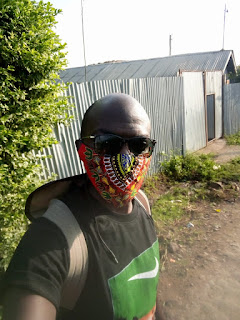Joining Advocacy Network Africa-AdNetA's AIDS 2020; Virtual Conference

AIDS 2020 Virtual Conference Planning Meeting Outcomes I hope this finds you well. We need to organise ourselves into a committee of three persons who would then design the best approach to conducting the AIDS 2020; Virtual Conference Event. The committee Members: Wasswa, Sulah and Tom. There is need to have the communications team to provide helping hands as we need to rearrange the venue to suit the event. We anticipate that from 7:00 pm-8:00 pm on 29th June 2020 to 15 th July 2020, we shall set aside time to make presentations which will be recorded and disseminated thereafter. So, we need to find time to make rehearsals as well as make required preparations. We need to identify the needs; resources and persons to do particular roles. Summary Activities: 1. Establish the “Refugees Organised Against AIDS (ROAA) space 2. Draw a schedule 3. Identify roles, r...


